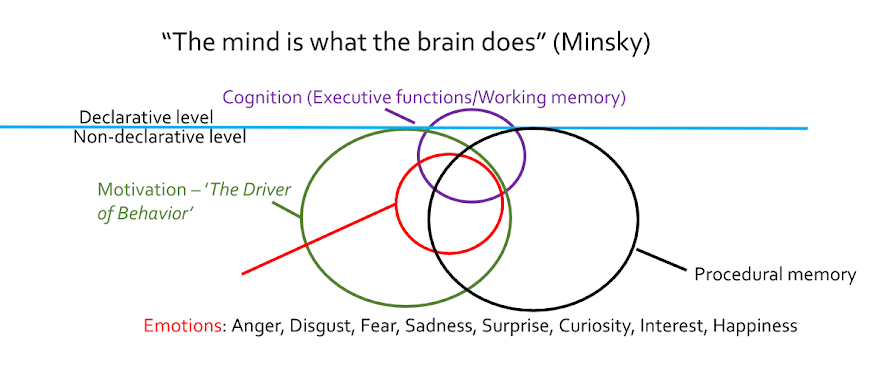Please support the blog via Swish (Sweden), MobilePay (Finland) or Wise.
Two days ago, Anahad O’Connor, a journalist working for the New York Times, wrote a piece about a new study which is claiming that animal-sources food is bad for heart-health. The referred paper was a respons to three papers using GRADE, showing that it's basically risk free to eat meat.
This is the framing O'Connor used to introduce the story:
“Four months ago, the Annals of Internal Medicine published a controversial report that encouraged people not to worry about the health risks of eating red and processed meat, contradicting decades of nutrition advice. The report was widely criticized by public health experts, including leading health groups like the American Heart Association and the American Cancer Society. Some experts called for the paper to be retracted, while others celebrated its findings and used it to raise questions about longstanding dietary guidelines discouraging meat consumption. On Monday, a group of prominent researchers pushed back, publishing a large study in JAMA Internal Medicine that once again highlighted the potential harms of a meat-heavy diet” (O'Connor, 2020).Here's a link to the underlying - Zhong et al. 2020.
By using the word controversial, O'Connor is demonstrating that he is biased. What's really controversial is that O'Connor, like so many journalists, uses one (1) study to make claims about things.
He didn't remark that:
- the study he is promoting is based on a food questionnaire. That's controversial.
- the critic against the GRADE-based studies was a post published on LinkedIn.
“Since the future is not an exact repetition of the past, simulation of future episodes requires a system that can draw on the past in a manner that flexibly extracts and recombines elements of previous experiences”.The studies O'Connor coined controversial used a method called GRADE, which take into account that epidemiological studies tend to be a bit shaky compared to experimental, or randomized control studies (RCTs).
What's fascinating: Zhong et al. 2020, the report O'Connor claimed pushed back the GRADE-based study, reported that the relative risk of eating animal-sourced food was closed to zero, that is, consistent with the studies they want to criticize!?
Why?
Animal-sourced food like bone marrow was introduced some 3.5 million years ago (McPherron et al. 2010; Thompson et al. 2018). Findings in Israel show marrow was an important source of nutrients some 400-200 000 years ago (Blasco et al. 2019).
Animal source food caused a reduction of their guts and an expansion of their brains (Aiello and Wheeler, 1995; Aiello, 1997).
A bigger brain gave room for new mental faculties, social cognition, symbolic thinking, and the executive functions, including prospective and meta-cognitive operations (Ardila, 2008; Barkley, 2001; Coolidge and Wynn, 2018; Pringle, 2016). Ergo. There is a reason to argue that animal-sourced food has its place on the plate.
During the Epipaleolithic, our ancestors started to settle (Hodder, 2018). 14 400 years ago, the Bakers the First bread (Arranz-Otaegui et al. 2018). 1400 years later, the Bret was breewed (Liu Ett a. 2018).
“Modern Swedish mysticist/theologian Emanuel Swedenborg (1688 – 1772), experienced dreams and visions that he believed transported him directly into heaven” (Phelps, p. 148).Here are some important facts to think about before going about with food-questionnaires.
“Drawing on the passage in Genesis (1:29-31) in which God Institute a vegan diet, Swedenborg said that meat eating corresponds to the fall from grace in the Garden of Eden and was, therefore, the point of entry of sin and suffering into the world” (Phelps, p. 149).
Because memory is constructive, when asked about how much you ate of this and that you have been eating for the past week, month, or year, what you should remember (that's semantic memory which is stable), it's impossible to reply in a reliable way (Scahill (2018).
Also, the result from such a questionnaire do not show causation, but correlation, or just covariance. In 2012, investigative journalist Gary Taubes wrote an interesting piece about method when studying nutrition:
“every time in the past that these researchers had claimed that an association observed in their observational trials was a causal relationship, and that causal relationship had then been tested in experiment, the experiment had failed to confirm the causal interpretation — i.e., the folks from Harvard got it wrong. Not most times, but every time. No exception”Nutrition scientist Dr. Zoe Harcombe takes it a bit further if you are interested in details (Red meat & the usual bad science).
Research is one thing, reporting about research to the public is another. Exactly why O'Connor framed the story the way he did I cannot say. Even so, based on Tversky and Kahneman (1981, we understand that by changing the content of the introduction, it's possible to change the understanding of Zhong et al. 2020. This is one example: Recently, reviews published in Annals of Internal Medicine concluded we should stick with the diet that gave us our large brains. Our questionnaire-based study showed similar results. Supporters of the diet-heart hypothesis and some vegans went bananas, while scientists favoring RCTs, celebrated its approach. On Monday, a group of epidemiologists hit back.
This article was originally posted on the University of Helsingfors blog for my research project (2018 – 2021).
Please support the blog via Swish (Sweden), MobilePay (Finland) or Wise.
Mer om min expertis:
Executive coaching for CEOs/managers and workshops to facilitate Organizational Performance, Learning, and Creativity for Problem Solving | Lectures: Nutrition for physical and mental health | Course/lecture: children's emotional and social adjustment and cognitive development | Language training - Swedish | Academy Competency | CV | Teaching skills and experience | Summary of research project | Instagram | Linkedin | YouTube-channel | TikTok | Twitter


No comments:
Post a Comment